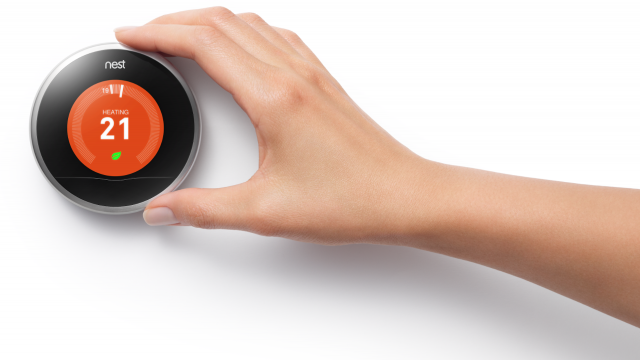 Image Nest
Image Nest
Nest Thermostat Found To Have Leaked Zip Codes
 Image Nest
Image Nest
Emely Stone
|
23 January, 2016, 03:04
Recommended
- Asia stocks end week rallying off year year lows
- Obama: US shouldn't 'accept' unsafe drinking water
- NOAA, NASA: 2015 was Earth's hottest by a wide margin
- Donald Trump Holds Lead, Bernie Sanders Pulling Ahead in Iowa — CNN Poll
- Louis Tomlinson Son Is Born!
- More Babies Are Being Born With Organs Outside Their Body
- Verizon revenue rises 3.2 percent
- North Korea says it's arrested American college student
- Du Plessis dropped, South Africa bat first
- Gaga wins; Gervais spews transphobic jokes — Golden Globes
- Maine Governor LePage May Take Pass on State of the State Address
- SAP raises 2017 goals after 'tremendous' year in 2015
- Biden sees politics of cancer world as obstacle to a cure
- Families hope search effort for missing Marines will succeed
- MI panel offers plan of returning safe water to Flint
Trending Now
Dont Miss
Popular destinations
- Best Non Gamstop Casino
- Non Gamstop Sites
- Casino Not On Gamstop
- Casino Not On Gamstop
- Casino Online Non Aams
- Non Gamstop Casinos
- Sites Not On Gamstop
- Non Gamstop Casinos Uk
- Sites Not On Gamstop
- Non Gamstop Betting Sites
- Best Online Casino Canada
- Online Casinos Not On Gamstop
- オンラインカジノ 一覧
- Mejores Paginas De Poker
- Gambling Sites Not On Gamstop
- Casinos Not On Gamstop
- UK Casinos Not On Gamstop
- Non Gamstop Casino Sites UK
- Slots Not On Gamstop
- UK Online Casinos Not On Gamstop
- UK Casino Not On Gamstop
- Meilleur Casino En Ligne France
- Meilleur Casino En Ligne
- Casino Not On Gamstop
- Bookmaker Not On Gamstop
- Casino Non Aams
- Meilleur Casino En Ligne Belgique
- Jeux Casino En Ligne
- Casino Online Esteri
- カジノ 仮想通貨
- Casino Live
- I Migliori Siti Poker Online
- Casino En Ligne Avis
- Migliori Casino Non Aams
- 코인카지노
- Casino En Ligne Français
- Nouveaux Casino En Ligne
- Casino En Ligne France
- Casino En Ligne France

